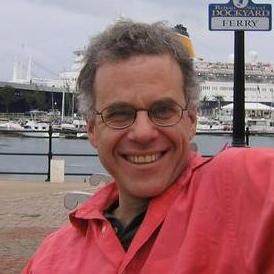Seth Goldstein
Office 7111 Gates and Hillman Centers
Email seth@cmu.edu
Phone (412) 268-3828
Department
Computer Science Department
Administrative Support
Christina Contreras
Research Interests
Programming Languages
Systems
Computer Architecture
Distributed Systems
My broad research interests center on ensembles, systems that contain massive numbers of interacting components. My goal is to understand, design, and build robust and useful systems that can scale towards millions, billions, or even Moles of components. While my main emphasis is on manufactured artifacts, I am also interested in the economy, i.e., a massively distributed system of people. In the area of reconfigurable computing (in the context of the PipeRench and Phoenix projects) we investigated how to compile high-level programming languages directly into configurations that could harness the large ensemble of gates for computing. He then began investigating how ensembles of molecules could be used to create circuits; investigating how to design, manufacture, and use molecular-scale devices for computing. This led to the Claytronics project, research into programmable matter; an ensemble of computing elements that can be programmed to work together to produce changes in the physical properties of the ensemble.
Currently, I am doing research in the area of compilers (fast register allocation and approaches to efficient parallel multi-core programs), computer architecture (integrating user-level interrupts into multi-core processors), understanding the future of work, and new monetary systems.
An outgrowth of my work on understanding the impact of technological progress on the labor market is BoLT, a platform that builds on local trust to create an equal-access funding and trading mechanism that increases the availability of capital, especially to small and traditionally disadvantaged borrowers. This project combines research on new public ledgers, new protocols, machine learning, and community building.
